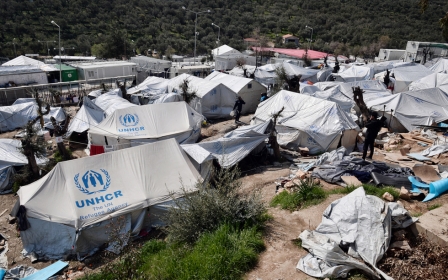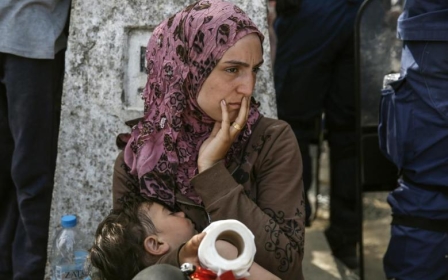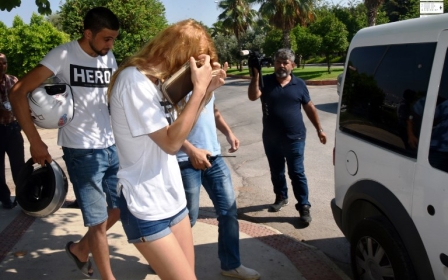EU says migrant return deal with Turkey 'working well'

An EU deal with Turkey to stem the westward flow of migrants and refugees is working well, and day-to-day bilateral ties are better than rhetoric might suggest, the bloc's top official for relations with neighbouring states said.
Johannes Hahn made the comments to ORF radio on Tuesday, days after Germany raised the possibility of suspending European Union aid payments promised to Turkey under the migrant deal.
"I have no concerns of any kind regarding the upkeep of the refugee agreement. It works," Hahn said. "One must say in many areas daily cooperation works better than the rhetoric and some of Turkey's actions might make one assume."
Hahn’s comments come just a day after a report by the medical NGO, Doctors Without Borders (MSF), warned that conditions in refugee centres on the Greek islands designed to hold migrants under the terms of the agreement were failing vulnerable people.
In exchange for three $3.5bn in financial aid and a promise to ease visa restrictions for Turks, Ankara has sharply cut numbers of migrants crossing into Europe via its territory from conflict zones in the Middle East and Afghanistan.
Turkey’s neighbour Greece, the EU entry point for the majority of migrants leaving Turkey, also agreed under the deal to detain all refugees arriving on its Aegean islands in the hope of deterring others.
During the height of the refugee crisis, Greece was receiving an average of 1,100 refugees a day. The vast majority were travelling to destinations in central Europe.
Thousands made the journey on foot from Greece through the Balkans leading Austria and other Balkan nations to close their borders.
The deal has seen numbers arriving in Greece dramatically decline to an average of 73 a day. But rights groups have widely condemned the deal for arbitrarily detaining refugees in inadequate and overcrowded refugee camps.
Referring to the deal in its report MSF warned that EU “policies aimed at returning as many people as possible to Turkey" were putting “vulnerable people’s health and well-being at risk” and warned systems in place were leading to a crisis of self-harm and suicide amongst refugees in Greece.
Believing that the EU is not meeting its side of the agreement, Ankara has in the past threatened to rescind from the deal and allow the passage of migrants to Greece again.
Turkey's foreign minister, Mevlut Cavusoglu, has said Ankara could re-evaluate or suspend all agreements under the refugee accord if the EU does not give a positive response on the issue of visa-free travel for Turks.
Hahn and EU foreign policy chief Federica Mogherini are due to meet Cavusoglu and Turkey's EU affairs minister, Omer Celik, later on Tuesday.
The migrant deal has been welcomed by many in Germany, the preferred destination for most migrants, but relations between Berlin and Ankara have hit a low over a range of issues, and each has accused the other of "unacceptable" behaviour in recent days.
Hahn's home country of Austria has meanwhile led calls for a formal end to suspended EU accession talks with Turkey - which were also due to be spurred by the migrant deal - over a security clampdown following a failed coup last year.
Under that state of emergency, some 50,000 people have been jailed pending trial - including a German citizen working with a human rights group - and around 150,000 suspended or dismissed from their jobs.
Asked where he saw Turkey's chances of EU accession in a year's time, Hahn said he saw no need for the state of emergency to still be in place, and that removing it would improve the rule of law in Turkey.
New MEE newsletter: Jerusalem Dispatch
Sign up to get the latest insights and analysis on Israel-Palestine, alongside Turkey Unpacked and other MEE newsletters
Middle East Eye delivers independent and unrivalled coverage and analysis of the Middle East, North Africa and beyond. To learn more about republishing this content and the associated fees, please fill out this form. More about MEE can be found here.




